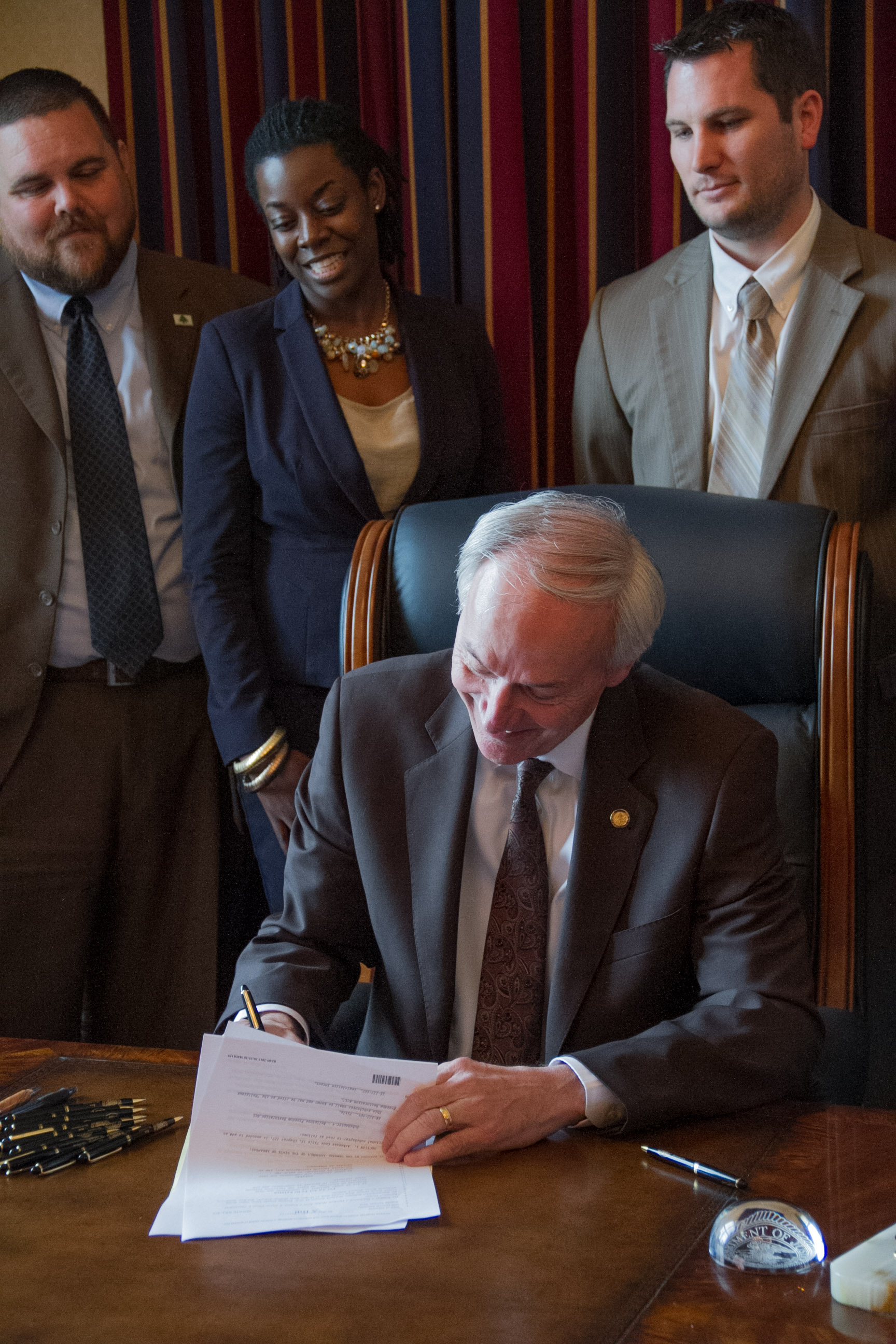A.G. Rejects Marijuana Proposals, Term Limits and Ethics Amendment
 Yesterday Attorney General Leslie Rutledge’s office rejected two ballot proposals related to marijuana and a third proposal repealing Amendment 94 to the Arkansas Constitution.
Yesterday Attorney General Leslie Rutledge’s office rejected two ballot proposals related to marijuana and a third proposal repealing Amendment 94 to the Arkansas Constitution.
Both marijuana proposals were offered by Robert Reed of Dennard. One proposal would legalize marijuana for any purpose statewide.
The other would legalize “hemp” and “medical cannabis.” The proposal distinguishes between hemp and “medical cannabis” by defining hemp as cannabis with relatively low levels of THC. The goal appears to be to legalize hemp for industrial use which we have written about before; however, even cannabis with low levels of THC might be used as a recreational drug, and presumably this measure could allow that.
You can read the A.G.’s opinions rejecting the two marijuana measures here and here.
A proposal by Tom Steele of Little Rock repealing Amendment 94 to the Arkansas Constitution was also rejected.
As you may recall, Amendment 94 was passed by voters last November as Issue 3; Issue 3 extends term limits in Arkansas, and coupled with Issue 1, which voters also passed last November, it gives the Arkansas Legislature a great deal of control over the ethics regulations that govern Arkansas’ elected officials.
Presumably, the goal of “repealing Amendment 94 to the Arkansas Constitution” is to restore Arkansas’ ethics laws and more stringent term limits laws that existed prior to 2014.
You can read the A.G.’s opinion rejecting Mr. Steele’s proposal here. You can read Amendment 94 in its entirety here.





 If you support religious freedom in Arkansas, you are not alone. Nearly two out of three likely voters in Arkansas support the state’s new Religious Freedom Restoration Act, and more than half believe a business-owner (such as a caterer or florist) with religious objections to same-sex marriage “should be allowed to refuse to those services to same-sex couples.”
If you support religious freedom in Arkansas, you are not alone. Nearly two out of three likely voters in Arkansas support the state’s new Religious Freedom Restoration Act, and more than half believe a business-owner (such as a caterer or florist) with religious objections to same-sex marriage “should be allowed to refuse to those services to same-sex couples.”